10 Sustainability Trends that Will Define 2025 According to Experts
Experts predict trends with the greatest impact on the sustainability sphere in 2025
Happy New Year to all our fellow sustainability folks! As we ring in 2025, we're looking ahead to what promises to be a pivotal year for global sustainability efforts. Continuing our annual tradition, we've reached out to leading sustainability experts to gain insight into the top ESG (Environmental, Social, and Governance) trends we can expect to shape the year ahead.
The State of Sustainability in 2025
2025 is poised to again be a year of significant sustainability developments across government policy, global initiatives, and everyday life. Only a few weeks into the year, we’ve already seen devastating, climate-related impacts in cities like Los Angeles, consistent with last year’s prediction that climate risk is now climate reality.
Meanwhile, reporting requirements around the world will begin to take effect, with the European Union's Corporate Sustainability Reporting Directive (CSRD) standing out as a key milestone. This is also regarded as a critical year within the framework of the Paris Agreement. February marks the deadline for countries to submit their updated Nationally Determined Contributions (NDCs) — an important element in the global effort to combat climate change1.
Several global discussions on sustainability are also slated to take place in 2025. Rome, Italy, will host the second session of the UN Biodiversity Conference in late February2, while UN-backed talks on a global plastics treaty are expected to resume in mid-20253. Additionally, COP30 will be held in Brazil in November4.
Alongside these global discussions, a multitude of climate-related rulings are expected in early 2025. Notably, the International Court of Justice (ICJ) is set to issue an advisory opinion on the legal obligations of countries to fight climate change, following a 2023 motion in the UN by the low-lying Pacific island country of Vanuatu, which was sponsored by over 130 countries5.
On a darker note, the election of climate change denier Donald Trump6 is leading to a scaling back of U.S. climate commitments, potentially undermining global progress. However, California, the most populous U.S. state, has implemented its own sustainability reporting requirements, which are expected to impact many large corporations doing business there.
So, What Are the Experts Saying?
With all these events converging in 2025, we’re at a critical crossroads in the fight for a sustainable future. Let's take a closer look at the key predictions experts have for the development of sustainability this year.
Trend 1: Sustainability is now a fight for values (and value)
Entering 2025, a major philosophical or ideological fight is underway in many parts of the world around what businesses, economies, and governments should value.
In one camp, are those who argue that the only point of business is financial value, profits, and shareholders. On the other side, many validly point out how shareholders aren’t the only stakeholders in business who matter: there are also employees, workers, customers, communities, and the planet and nature overall. This side also argues that there are risks, opportunities, impacts, and economic value levers beyond mere financial value.
Sustainability professionals, historically, have mostly fallen into the latter camp, looking at sustainability through the lens of positive social contributions, reputation benefits, and long-term prosperity.
And while these aims are noble — and ones we agree with — given the degree of short-term economic challenges, such as inflation, fiscal austerity, and higher cost of living for many consumers, alongside political gains by conservatives and the far right, we feel sustainability can strengthen its competitiveness and success by fighting in both arenas. In other words, how does sustainability build the brand, enable compliance, and make an organization more resilient, but also deliver on the bottom line, particularly in terms of financial benefits?
“Remember, in business, ‘efficiency’ and ‘sustainability’ are near-synonyms. Improving and electrifying logistics, cutting energy usage (and costs), championing circularity, and investing in innovative methods and materials will drive sustainability outcomes and financial ROI that helps CEOs and CFOs defend, support, and invest in it. Particularly now.” - Chris Bolman, Co-Founder at Brightest
As a result, we expect 2025 will be a period of many companies moving away from symbolic commitments and big press announcements, and embracing quieter, results-focused sustainability action and implementation. By more closely integrating sustainability into core business functions, KPIs, and decision-making, we feel sustainability can continue to create both social benefit and economic opportunity while shielding itself to some extent from right-wing political headwinds.
Trend 2: AI-Driven Sustainability Performance
AI had a breakout year in 2024, and we expect that to continue this year. AI-driven sustainability represents a transformative approach to tackling environmental challenges. By leveraging advanced technologies, businesses and governments can optimize resource management, reduce emissions, and promote circular economy principles.
“Businesses will leverage AI to optimize sustainability performance, such as improving energy efficiency, waste reduction, and resource allocation.” - Antonio Vizcaya Abdo, Professor of Corporate Sustainability & LinkedIn Top Voice
The relevance of AI in 2025 will amplified by the urgent need to predict and mitigate the effects of climate change, as global temperatures have already surpassed the critical 1.5°C threshold7. AI's ability to analyze vast amounts of data can help track and model climate patterns, improving our understanding of ongoing changes and guiding more effective interventions. AI will also play a key role in accelerating the adoption of renewable energy technologies. By optimizing the efficiency of wind, solar, and water power systems, AI can contribute to the critical task of tripling the supply of renewable energy required to meet global demand.
In addition to energy production, AI can also support the adoption of cleaner technologies across various sectors. For instance, AI can enable more efficient resource use in the food sector by promoting alternative proteins and reducing meat and dairy consumption, potentially saving ~3 GtCO2e annually8. In the mobility sector, AI-driven shared transport and optimized EV adoption could further reduce emissions by ~0.6 GtCO2e per year.
By integrating AI into sustainability strategies, organizations can achieve substantial reductions in environmental impact, drive innovation, and actively support the global efforts needed to combat climate change, while also hopefully lessening their sustainability reporting workload. AI is a big product development theme for us here at Brightest, and we’re excited to share more with you on that front in the coming months.
Trend 3: A Focus on Designing Resource-Efficient AI Systems
While AI offers significant potential for advancing sustainability and creating economic value, the technology has notable downsides, particularly its resource-intensive nature. Indeed, the best available estimates project that AI could add 0.4-1.6 GtCO2e to global emissions annually by 2035.
“Certain AI models can be highly energy-intensive, contributing to environmental degradation. As AI models continue to expand, it is crucial to consider their environmental footprint within the context of planetary limits.” - Ambreen Waheed, Founder at RBI-Responsible Business Initiative & Responsible Behaviour Institute
Researchers are exploring ways to optimize semiconductor chips and AI models to reduce power consumption without sacrificing performance, as well as migrate more of AI’s processing over to clean power. The transition to using renewable energy to power data centers is vital for reducing the carbon footprint of AI systems.
By focusing on these green innovations, the AI industry can decrease its ecological impact while supporting sustainability efforts in other sectors. With thoughtful, forward-thinking strategies, AI has the potential to be not only a tool for progress but also a key player in the transition to a more sustainable future.
Trend 4: Governance as the Cornerstone of Brazil’s 2025 Sustainability Leadership
Governance will be crucial in shaping Brazil’s role as a sustainability leader in 2025. With global climate leadership expect to shift away from the United States this year, we’re looking to other countries and regions like the United Kingdom, European Union, and, yes, Brazil to take a more prominent role.
For Brazil, sustainability is becoming the foundation for the country’s long-term environmental, economic, and social goals. The country’s political landscape is undergoing significant change, especially with the upcoming COP30, a key event in the global climate conversation. Under the leadership of President Lula (Luiz Inácio Lula da Silva), who has already taken several political stances on climate, Brazil has set the stage for transformative policies that will strengthen its environmental and sustainability goals. In 2026, new corporate sustainability reporting regulations will come into effect, making Brazil the first country in Latin America to adopt such measures—further solidifying its position as a sustainability leader.
Moreover, Brazil is home to the world’s largest rainforests and vast natural resources, with significant contributions to both carbon credits and clean energy production, further underlining its leadership role in climate action. Effective governance structures are essential to ensure sustainability initiatives are executed transparently, equitably, and with measurable outcomes. By strengthening institutions, promoting accountability, and fostering collaboration across government, business, and civil society, Brazil can establish a strong framework that drives sustainable development.
“Governance is no longer just about compliance—it’s about building frameworks that ensure transparency, accountability, and long-term impact in environmental, social, and corporate initiatives.” - Ricardo Yukishigue Kitajima, Director Carbon Neutral Project at Honda Brasil
Additionally, effective governance will empower local communities, protect biodiversity, and facilitate Brazil's transition toward a green economy. As Brazil faces critical challenges such as deforestation and resource management, strong governance will provide the necessary guidance and political will to address these issues. It will also foster innovation and social inclusion to secure a sustainable future for all.
“In 2025, governance is not just a trend—it’s the key to transformative, lasting change.” - Ricardo Yukishigue Kitajima, Director Carbon Neutral Project at Honda Brasil
Trend 5: Growing Demand for Green and Impact Jobs
A 2024 survey from Deloitte9 revealed that over 40% of Generation Z and Millennial workers planned to change jobs due to climate concerns.
“People are starting to ‘wake up’ and realize that they don’t want to continue in the rat race. They want to do something meaningful with their lives.” - Carlos Terol, Founder of GoodRipple & LinkedIn Top Voice
Fortunately, the green job market is growing rapidly. According to LinkedIn’s Global Green Skills Report 202310, job postings for green roles are increasing nearly twice as fast as the number of workers with the necessary skills to fill them. This trend is expected to continue, making 2025 an ideal year to upskill by acquiring new sustainability certifications and knowledge, particularly in more sustainability-favorable countries and regions.
Trend 6: Acceleration of Decarbonization Efforts
In 2025, global decarbonization efforts are expected to make significant progress, driven by stronger policy frameworks, technological advancements, and enhanced international cooperation. A key moment in this trajectory occurred at COP29 in Azerbaijan, where nations reached substantial agreements that will shape the global carbon market’s future11. The conference resulted in the adoption of a unified global carbon pricing system designed to incentivize emissions reductions while ensuring equitable access for developing countries. New mechanisms for carbon trading and financing were also introduced to enhance transparency, reliability, and effectiveness across borders. These agreements are expected to spur large-scale investments in low-carbon technologies, green energy, and carbon capture solutions, accelerating the transition to a net-zero economy.
“With mounting pressure to meet climate pledges, businesses will intensify decarbonization strategies.” - Antonio Vizcaya Abdo, Professor of Corporate Sustainability & LinkedIn Top Voice
With these frameworks in place, countries will be better equipped to meet their climate commitments while fostering innovation in key sectors such as renewable energy, electric transportation, and sustainable agriculture. As decarbonization efforts gain momentum, 2025 could mark a pivotal year in the global push toward climate resilience and environmental sustainability.
Trend 7: The Social Component of ESG Will Take on a New Relevance
The social component of ESG will come under greater scrutiny in 2025, driven by both regulatory changes and evolving societal expectations. Companies will face greater pressure to ensure they uphold ethical practices across their operations. The importance of human rights and labor practices is being reinforced by new regulations such as the Corporate Sustainability Reporting Directive (CSRD) and Corporate Sustainability Due Diligence Directive (CSDDD) in the EU, the S-211 in Canada, and the UK Modern Slavery Act, all of which demand more robust reporting on supply chain conditions12.
Simultaneously, consumer expectations around corporate behavior are evolving, with an increasing spotlight on how brands treat their employees. A prime example is Shein, a fast-fashion company that has faced public backlash regarding labor conditions within its supply chain13. This has made clear that consumers and investors alike are paying closer attention to the social impact of companies, particularly when it comes to the treatment of workers.
“There has definitely been a strong push to make supply chains more ethical, with a multitude of regulations like S-211, the UK Modern Slavery Act, and the CSDDD. This aligns with the repeated backlashes we’ve seen against fashion brands failing to treat their workers properly. It’s now becoming much harder to hide such practices, so companies will need to take action to avoid bad publicity and lose market share.” - Nina Benoit, Director of Sustainability at Brightest & TEDx Speaker
Despite this, Diversity, Equity, and Inclusion (DEI) initiatives are facing rollbacks in the United States, where an executive order has repealed these initiatives within federal agencies. This presents a contradiction in the broader social landscape, as many companies continue to emphasize the importance of DEI in their operations, often citing it as a key element of their ESG commitments.
As concerns around the social impact of large businesses grow, companies will need to improve their transparency and accountability in reporting social and human rights issues, making it a critical area of focus within the broader ESG framework. With heightened regulatory oversight and a more socially conscious consumer base, the social aspect of ESG will undoubtedly play a central role in shaping corporate reputations and long-term success.
Trend 8: Phasing Out Fossil Fuels
The phase-out of fossil fuels is expected to accelerate in 2025 as countries intensify efforts to combat climate change and reduce reliance on polluting energy sources. This transition is vital not only for reducing greenhouse gas emissions but also for creating a more sustainable and equitable energy system.
“Fossil fuel subsidies often disproportionately benefit higher-income groups who consume more energy, rather than the lower-income households they are intended to support. Phasing out these subsidies is a crucial step toward advancing climate goals and building a more equitable, sustainable energy system. Collaborative efforts with fossil fuel companies will become essential in driving the transition to innovative, environmentally friendly energy sources.” - Ambreen Waheed, Founder at RBI-Responsible Business Initiative & Responsible Behaviour Institute
Although the phase-out of fossil fuels will present challenges, particularly in regions dependent on fossil fuel industries, the long-term benefits—including cleaner energy, reduced environmental damage, and the creation of green jobs—make 2025 a critical year in the global effort to transition to a fossil-free future.
Trend 9: Ramp-Up of Positive Actions as the 2030 Deadline for UN SDGs Approaches
With only five years remaining before the 2030 deadline, experts anticipate an increase in actions aimed at achieving the United Nations Sustainable Development Goals (SDGs). The urgency to act has never been more pressing as global challenges such as climate change, poverty, inequality, and resource depletion intensify.
“We will see the clock ticking faster. There will be more awareness being spread, together with more action. This is great news for pretty much every impact sector, from social impact to climate change.” - Carlos Terol, Founder of GoodRipple & LinkedIn Top Voice
In 2025, expect intensified efforts across key sectors, from clean energy and sustainable agriculture to social equality and health. The push to achieve the SDGs by 2030 will require unprecedented collaboration and bold actions, making the next five years pivotal in shaping a more equitable, resilient, and sustainable future for all.
Trend 10: Promoting Planetary Peace
Conflict undermines sustainability efforts by diverting attention, resources, and infrastructure away from long-term development goals14 . Indeed, the World Economic Forum recently named “state-based armed conflict” as the top current risk in their Global Risks Report 202515. In conflict zones, the destruction of critical infrastructure—including schools, healthcare facilities, and energy systems—disrupts essential services and halts progress on environmental and social sustainability. Resources that could otherwise address climate change and poverty, or promote renewable energy are often redirected to military expenditures and rebuilding efforts. Moreover, conflict exacerbates social inequality, displacement, and human suffering, further impeding the achievement of the SDGs.
“Peace is also vital, as conflict intensifies the sustainability crisis and obstructs progress toward a resilient, sustainable future.” - Ambreen Waheed, Founder at RBI-Responsible Business Initiative & Responsible Behaviour Institute
Conflict not only disrupts the immediate welfare of communities but also has long-lasting consequences that prevent sustainable, peaceful, and inclusive development. Positively, 2025 has already seen a ceasefire in Gaza16. Moving forward, experts hope that promoting peace will advance sustainability efforts, driving us toward a better future. We are cautiously hopeful that a sustainable, sensible end to Russia’s invasion of Ukraine can also be achieved, and no new major conflicts emerge, particularly China-Taiwan.
Key Take-Aways
2025 stands as a crucial year in the global pursuit of sustainability, marked by both exciting opportunities and significant challenges. With key milestones such as the implementation of the Corporate Sustainability Reporting Directive in the EU, the Paris Agreement's ongoing evolution, and major global summits like COP30 in Brazil, the world’s sustainability trajectory is at a critical juncture.
Experts predict a growing emphasis on governance, AI-driven sustainability, green jobs, and decarbonization efforts, all of which will shape the future of our planet. As the pressure to meet ambitious climate goals intensifies, there is also a growing recognition that a just, sustainable future demands action from all sectors of society. In the coming year, the convergence of these efforts will hopefully accelerate the global transition towards a more resilient and equitable world, where both environmental and social challenges are addressed in tandem.
This Week in Sustainability is a weekly email from Brightest (and friends) about sustainability and climate strategy. If you’ve enjoyed this piece, please consider forwarding it to a friend or teammate. If you’re reading it for the first time, we hope you enjoyed it enough to consider subscribing. If we can be helpful to you or your organization’s sustainability journey, please be in touch.

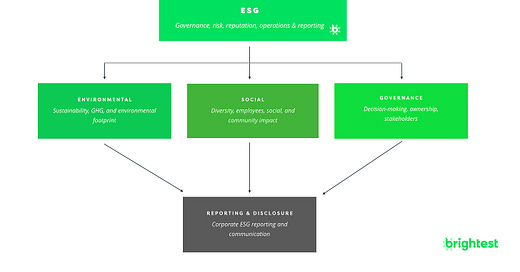





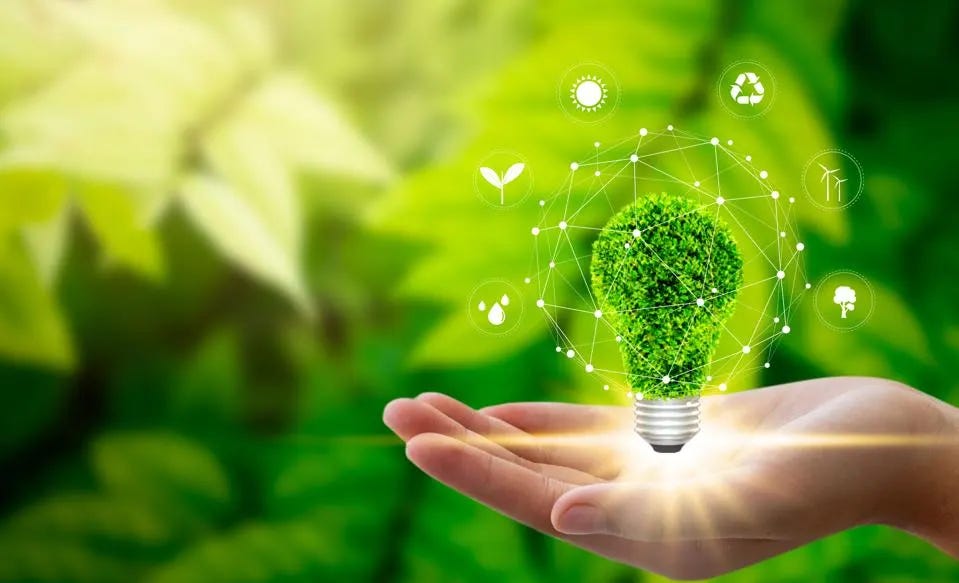
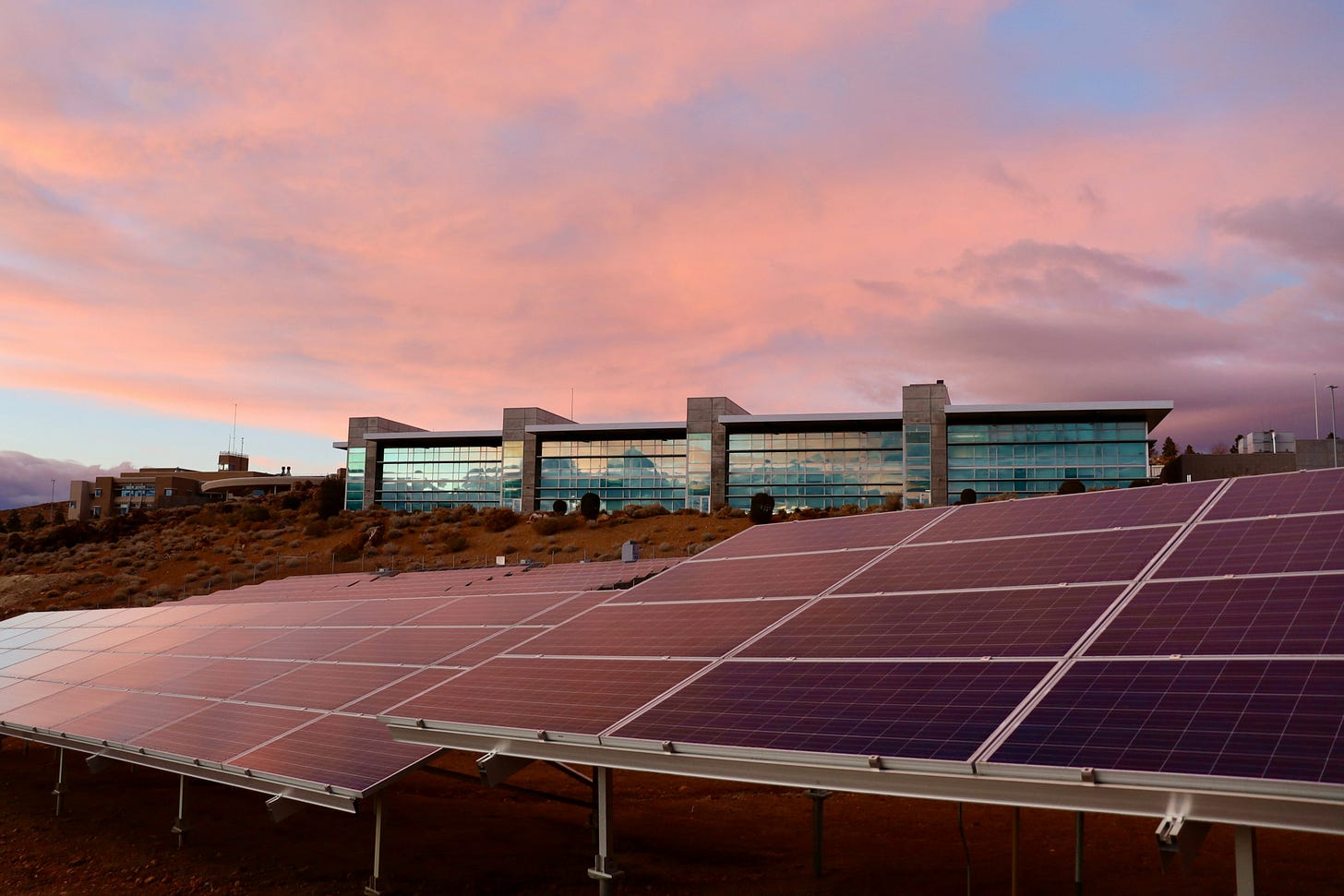
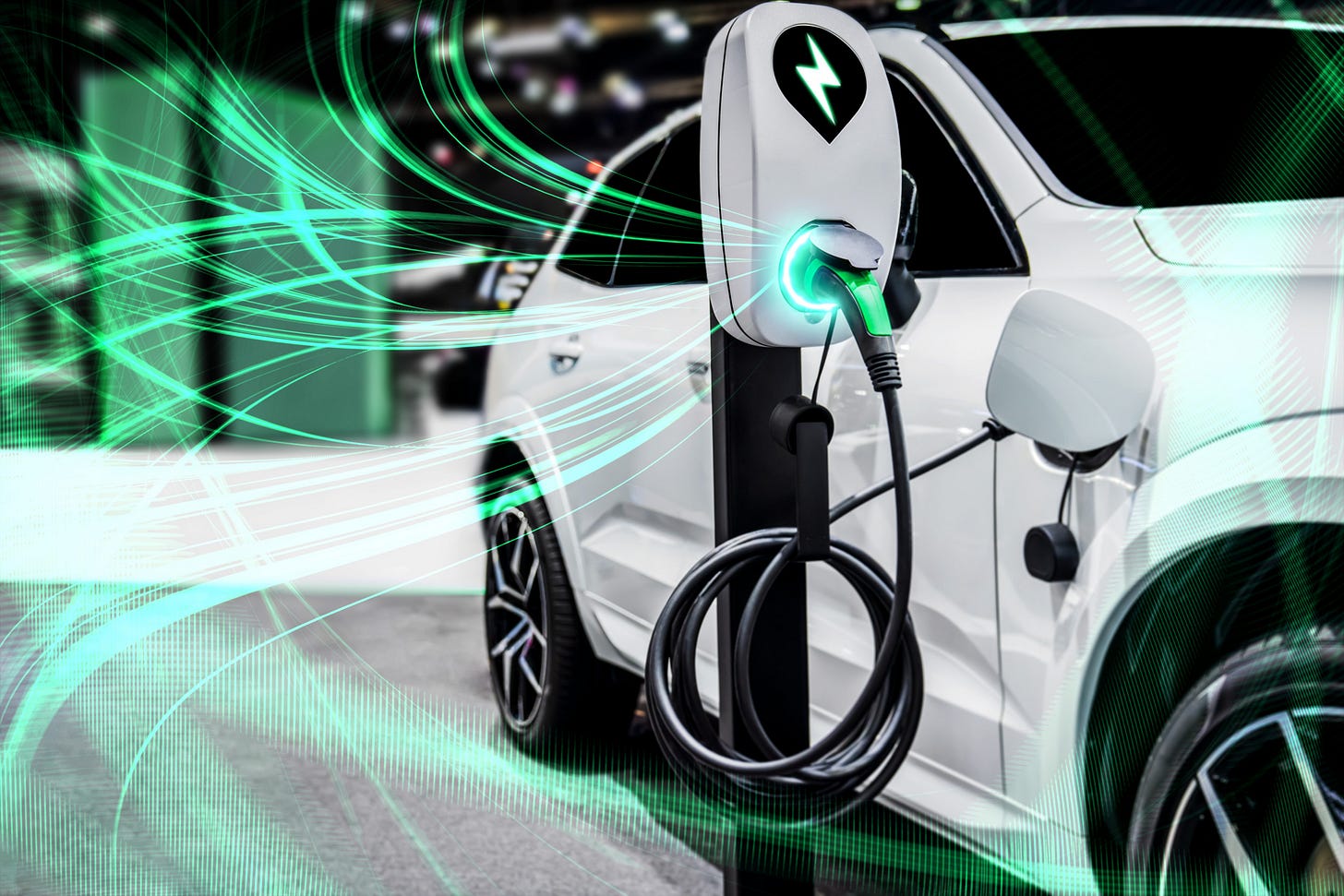
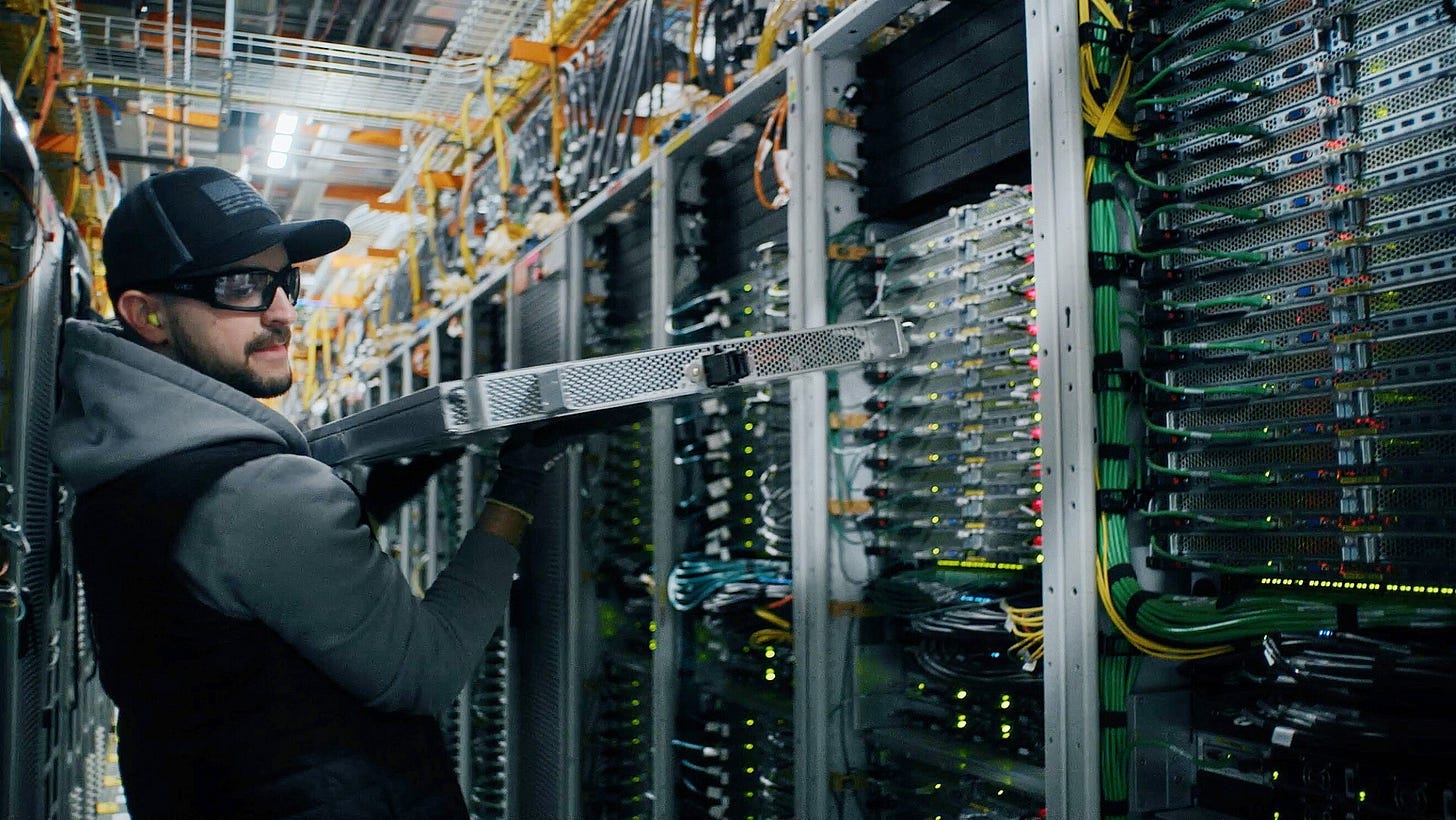

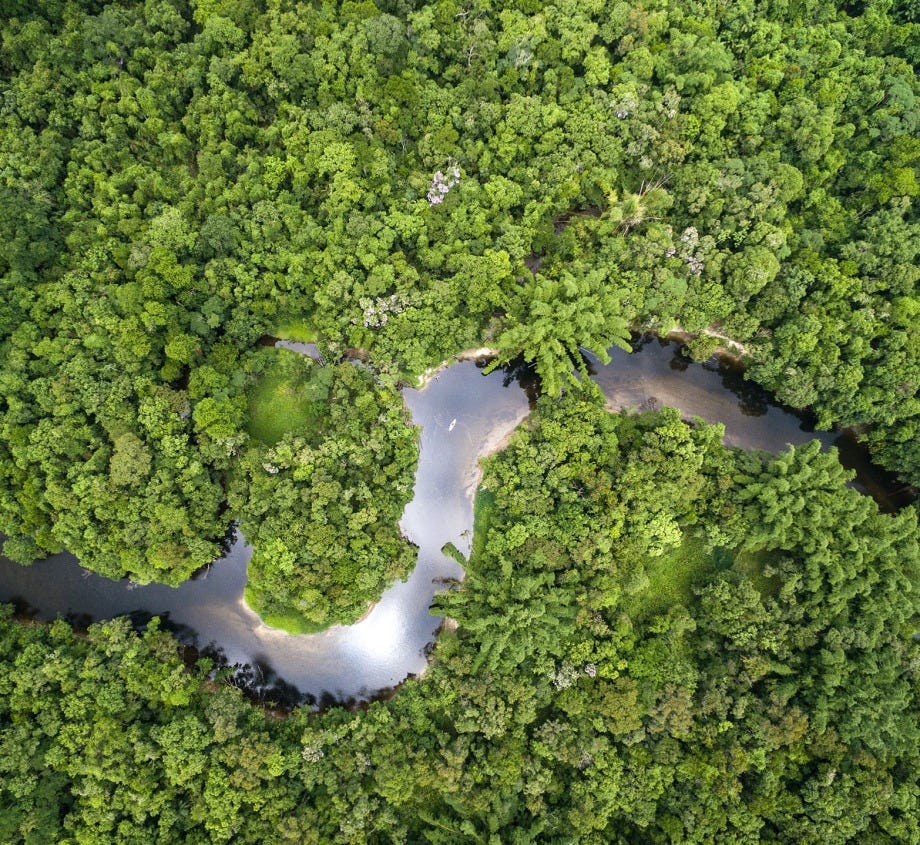
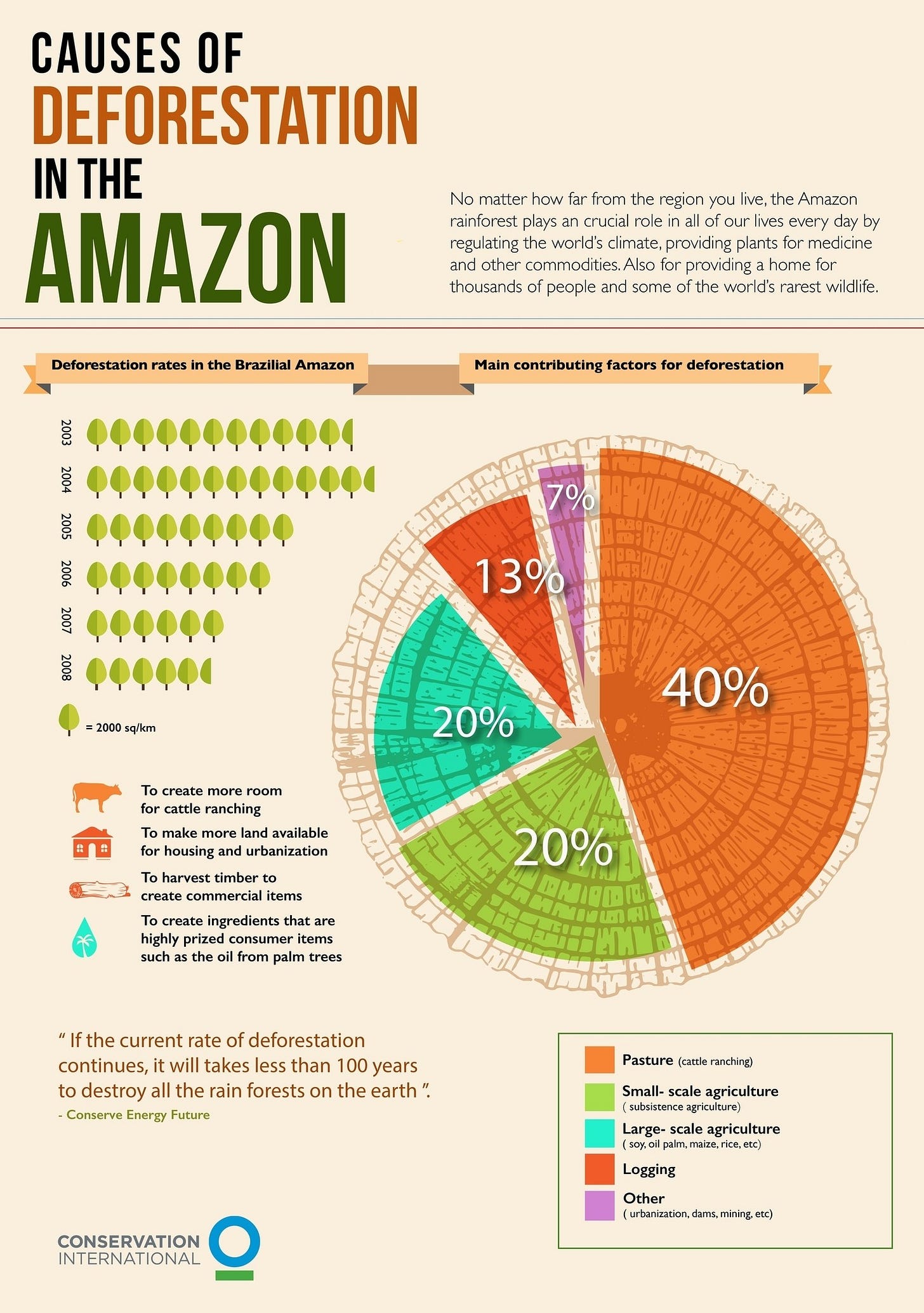

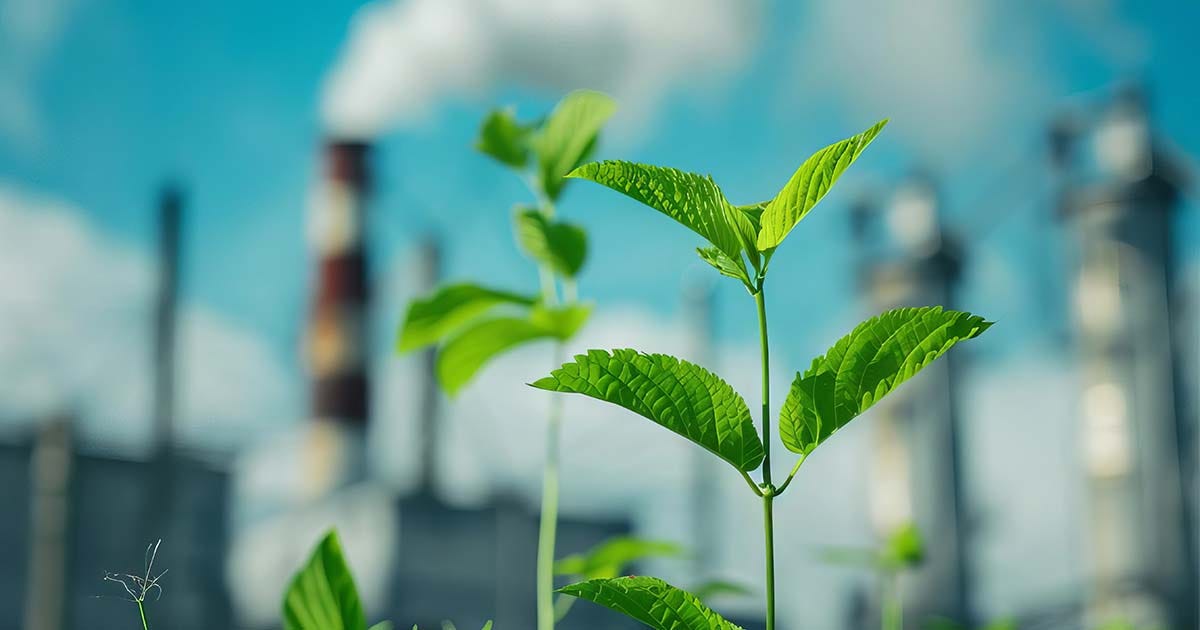
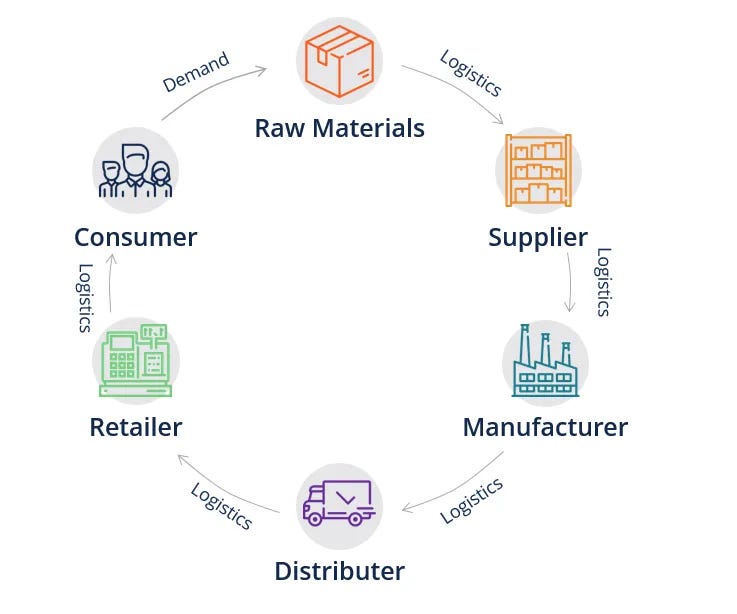
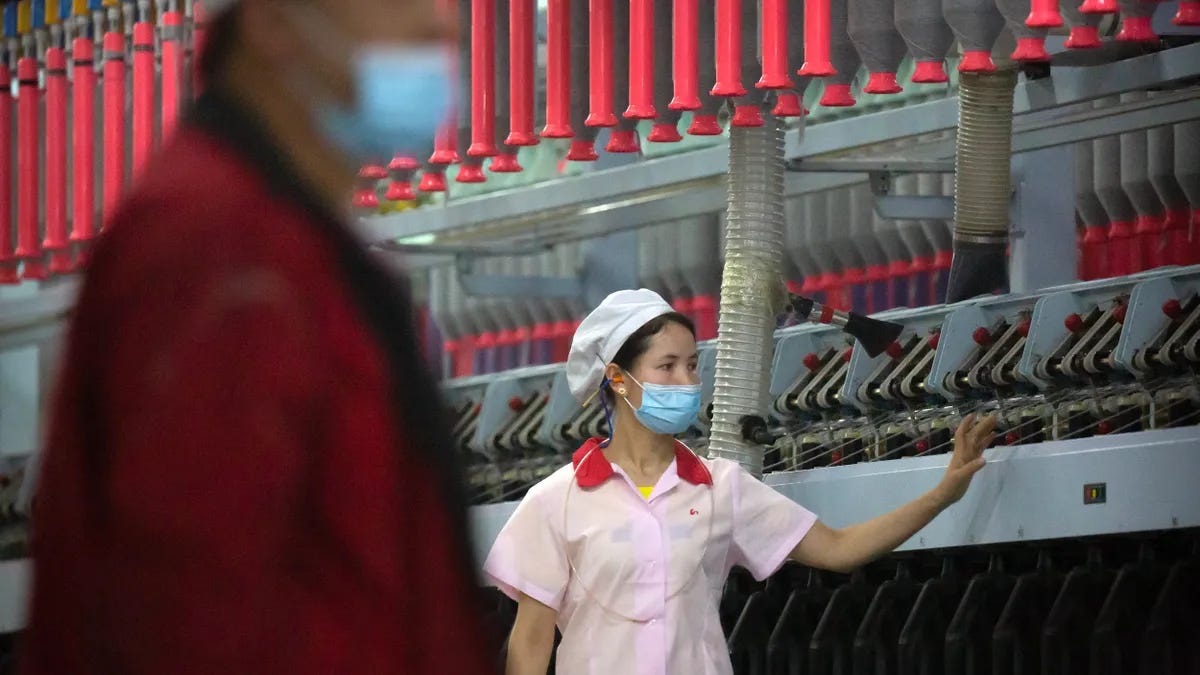
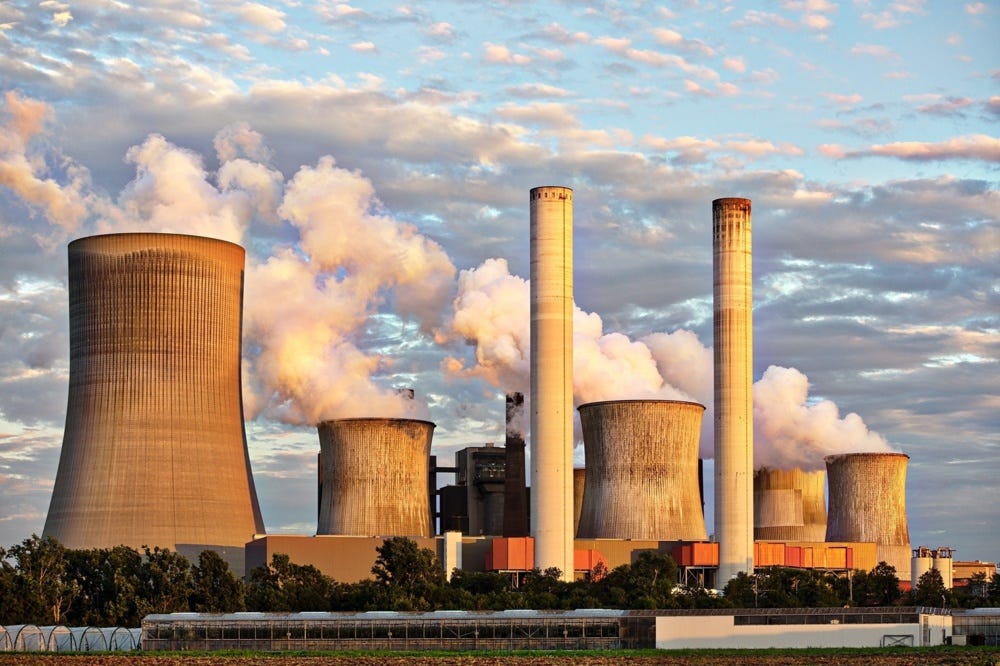
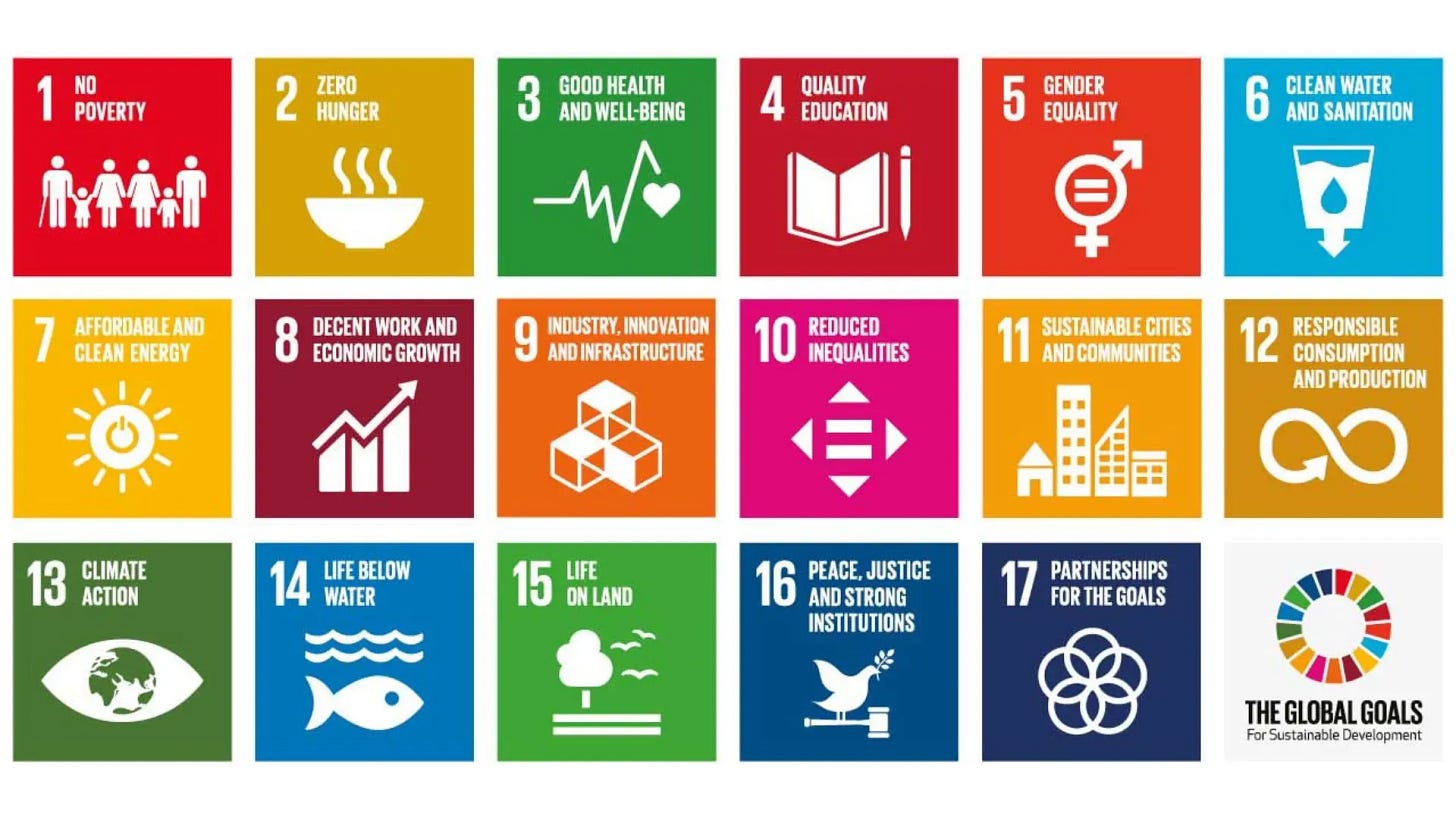

Thank you for your insightful article.
Many companies struggle with exploring their supply chains. Due to these difficulties, they tend to focus on strengthening audits at the Tier 1 level. While this is certainly important, it alone is not enough to meet European and global standards.
At aiESG, Inc., we support supply chain transparency using AI and big data. Our technology identifies the country and sector of raw material production areas, but in the end, on-the-ground investigations through corporate engagement remain essential.
We sincerely hope that more companies will build responsible supply chains and promote ethical and sustainable business practices.